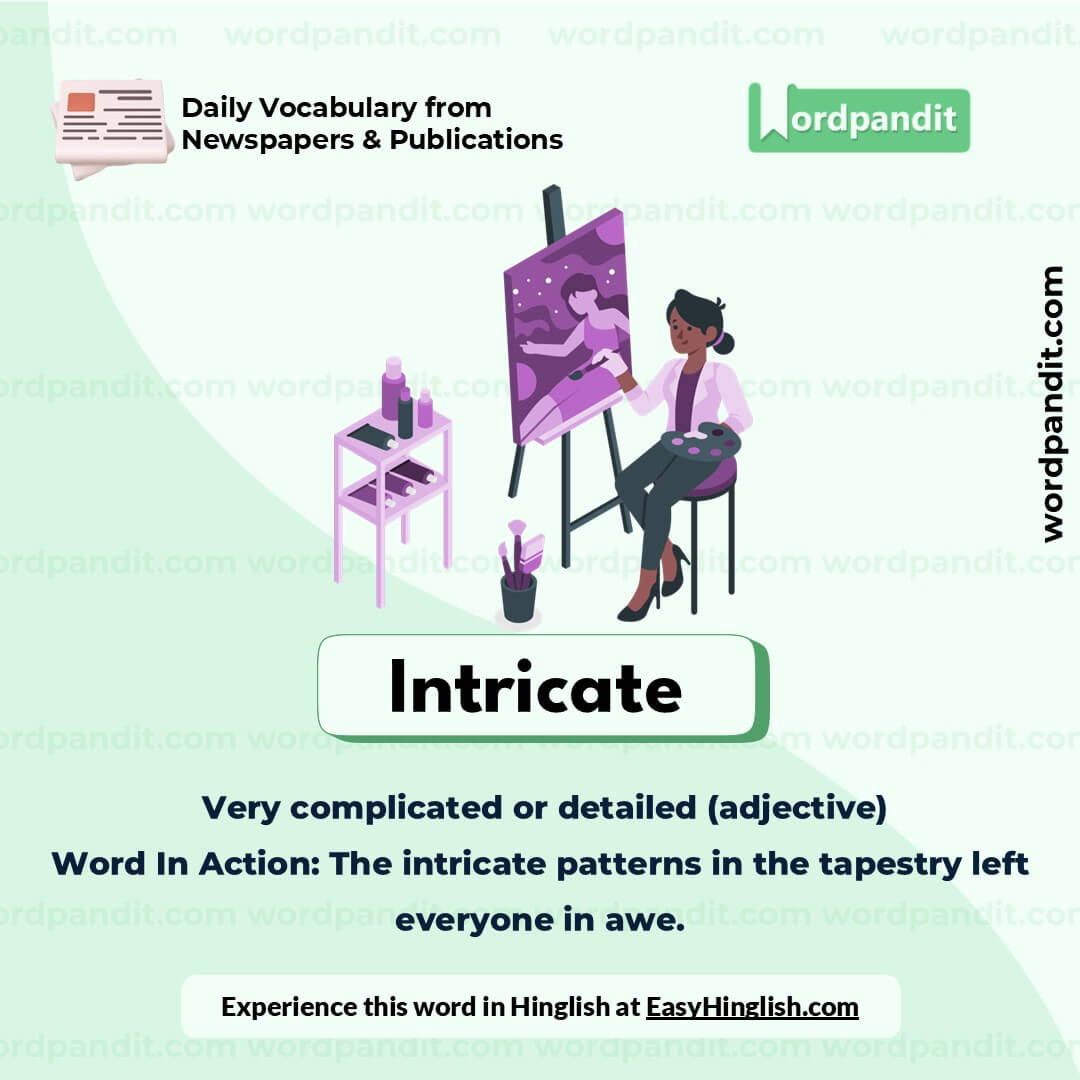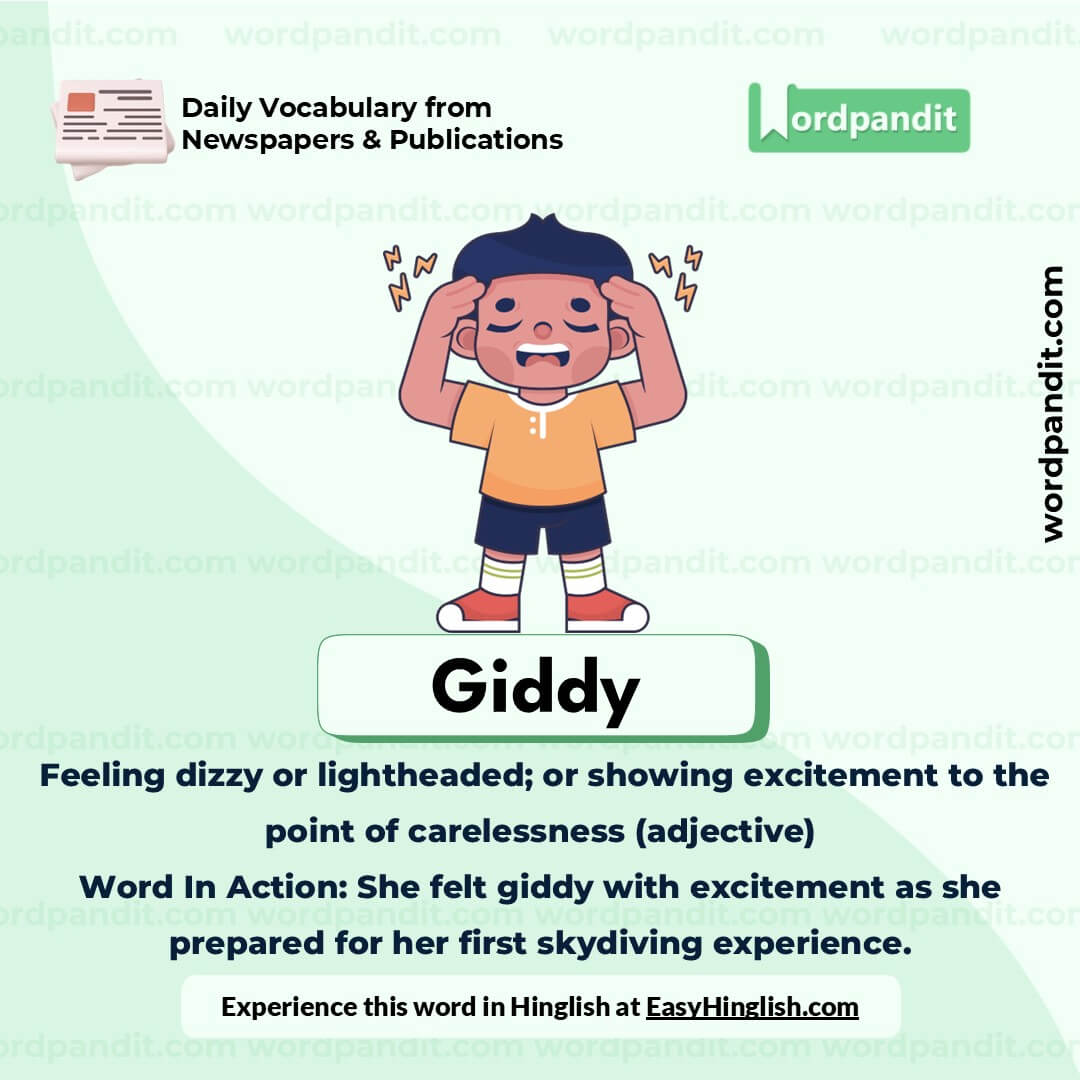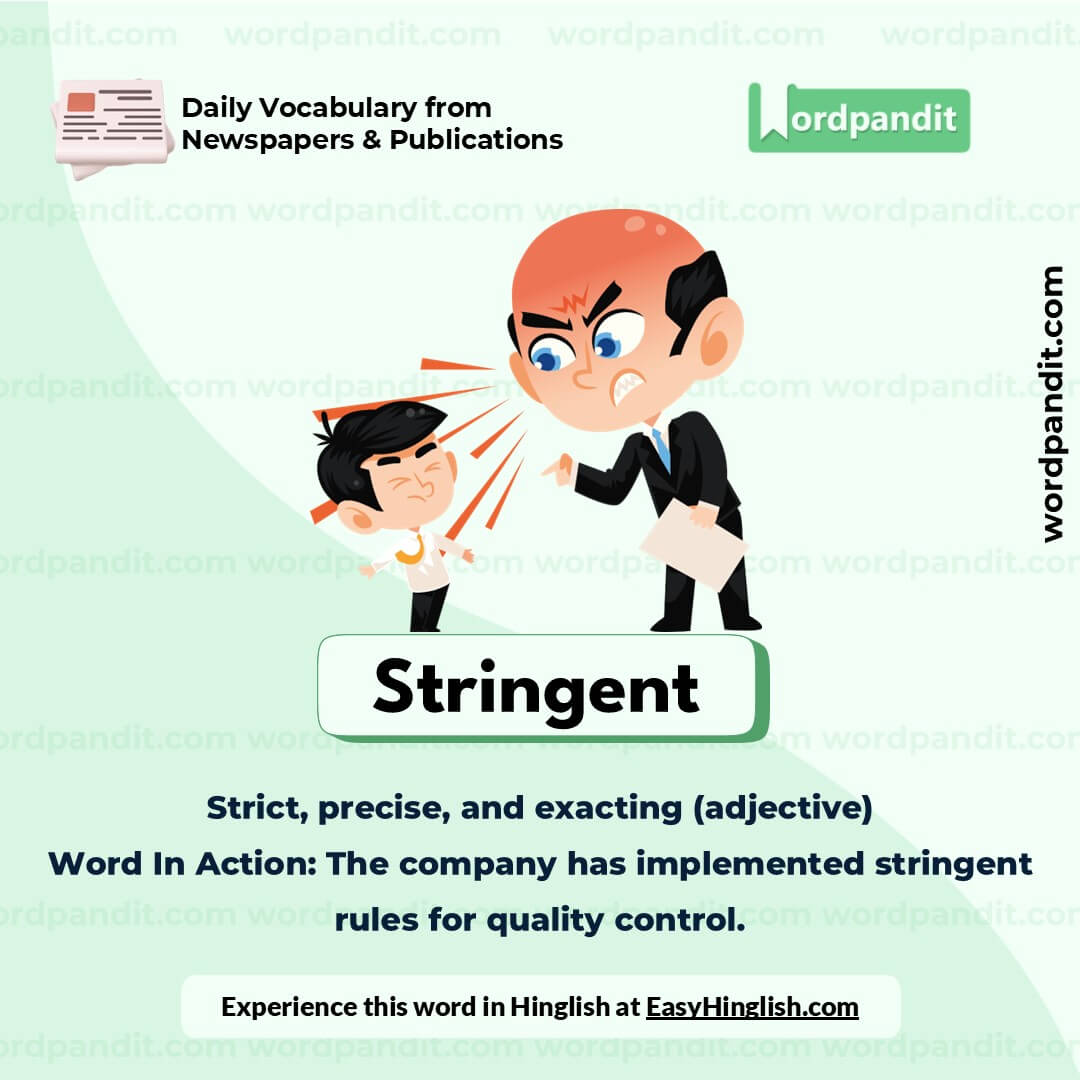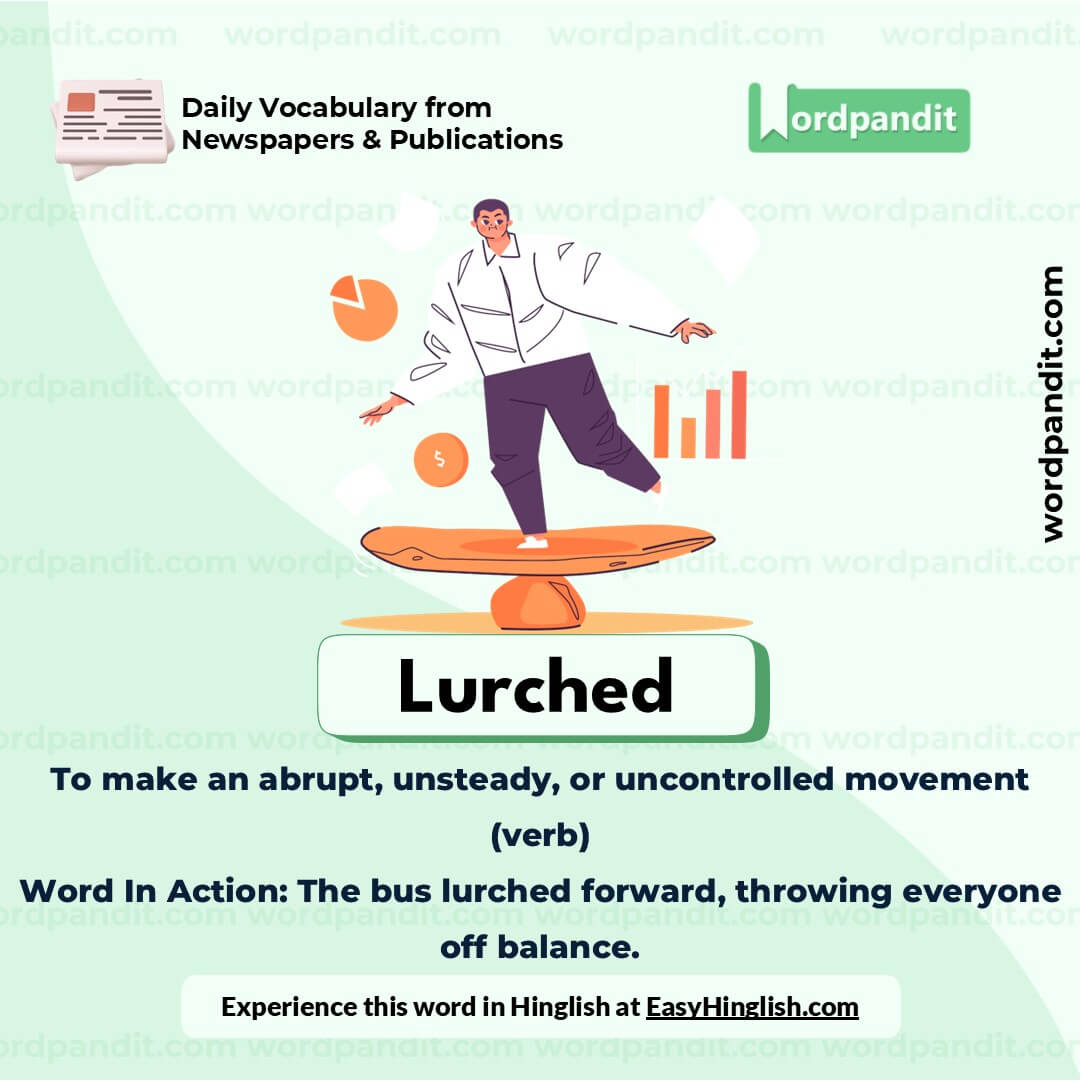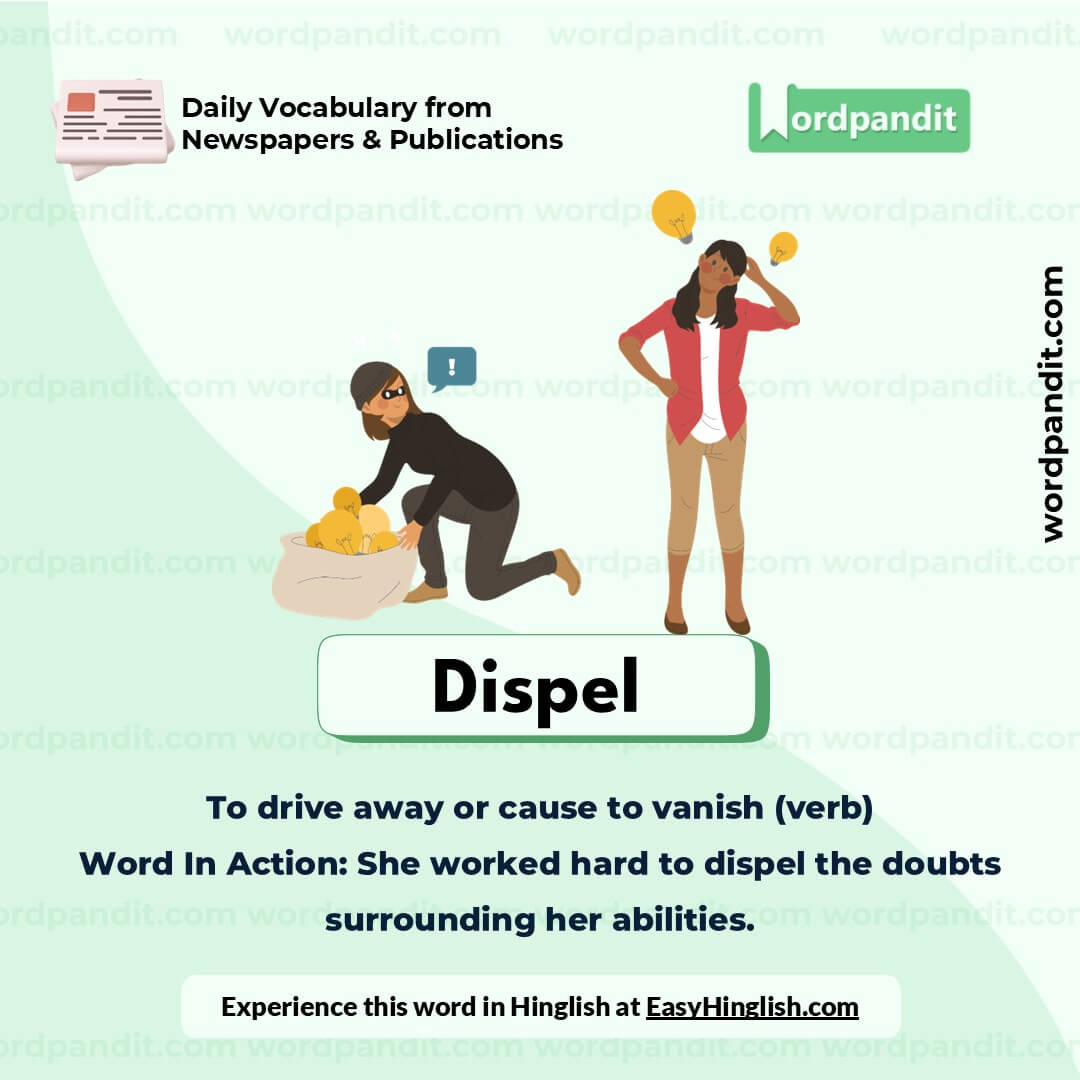Daily Vocabulary from Indian Newspapers and Publications
Welcome to Wordpandit’s Indian Vocabulary Hub
At Wordpandit, we understand the importance of staying rooted in the local context while expanding your language skills. This section focuses on enriching your vocabulary with words and phrases drawn from India’s leading newspapers and publications, ensuring you're learning vocabulary that is practical, relevant, and uniquely Indian.
Why Indian Sources Matter
We believe that the best way to master any language is by immersing yourself in local content. That’s why we carefully curate vocabulary from top Indian publications, including:
- The Hindu
- The Times of India
- The Economic Times
- Hindustan Times
- Live Mint
- The Indian Express
- And many others...
Stay Updated, Stay Relevant
With daily updates from Indian news sources, you’ll be consistently learning words that reflect the trends and shifts in Indian society and culture. Our focus is to provide vocabulary that enhances your understanding of the language in an Indian context.
How Wordpandit Supports Your Goals
Whether you’re preparing for exams, aiming to improve your professional communication, or simply want to stay connected with the latest Indian vocabulary, Wordpandit is here to guide you every step of the way.
Learn with a Practical Approach
Our interactive learning methodology includes real-world examples, engaging activities, and context-specific usage to ensure that every word becomes part of your active vocabulary.
Dive into Indian Vocabulary Today!
Why Choose Wordpandit?
Practical Learning: Focus on words you'll actually encounter in real-world reading, enhancing your comprehension and communication skills.
Diverse Content: From current affairs to scientific breakthroughs, our varied sources expose you to vocabulary across multiple domains.
Effortless Integration: Make Wordpandit a part of your daily routine. Just a few minutes each day can significantly boost your lexicon over time.
Your Path to Vocabulary Mastery
- Visit our Daily Vocabulary section regularly
- Explore new words and their usage in context
- Practice incorporating these words into your own writing and speech
- Track your progress as your vocabulary expands
Start Your Journey Today
Embark on your vocabulary enhancement journey with Wordpandit. By consistently engaging with our daily posts, you'll build a robust vocabulary that serves you well in academic, professional, and personal contexts.
Remember, a word a day keeps linguistic limitations at bay. Make Wordpandit your daily companion in the quest for vocabulary excellence!
WORD-1: Intricate
Context:
"The battle for control of the 288-member Assembly has seen shifting alliances, ideological clashes, intricate caste equations and emotional appeals, with the ruling Bharatiya Janata Party-led Mahayuti alliance and the Congress-led Maha Vikas Aghadi (MVA) being the principal contenders." - The Hindu
Explanatory Paragraph:
The word intricate refers to something that is complex, detailed, and composed of many interconnected elements or parts. When describing something as intricate, it often implies that it requires careful attention to understand or analyze.
Meaning: Very complicated or detailed (adjective)
Pronunciation: IN-tri-kit
Difficulty Level: ⭐⭐⭐ (Intermediate)
Etymology: From Latin intricatus, meaning "entangled" or "complicated"
Synonyms & Antonyms:
Synonyms: complex, detailed, elaborate, convoluted, sophisticated
Antonyms: simple, straightforward, plain, uncomplicated
Usage Examples:
- The intricate design of the cathedral left the visitors in awe.
- Solving the intricate puzzle required hours of concentration.
- The story's intricate plot kept readers guessing until the final chapter.
- The scientist explained the intricate mechanisms of the human brain with clarity.
Cultural Reference:
"Life is really simple, but we insist on making it intricate." - Confucius
Think About It:
Why do you think humans often find beauty in intricate designs or patterns?
Quick Activity:
Draw or describe an intricate pattern you have seen recently, such as on fabric, architecture, or nature. What makes it intricate?
Memory Tip:
Remember "intricate" by linking it to "in-tricks," like something so detailed it tricks the eye with its complexity.
Real-World Application:
The word "intricate" is useful when describing detailed processes, art, or systems, making it ideal for technical writing, storytelling, or academic contexts.
WORD-2: Giddy
Context:
"Investors, giddy after the recent bull run that's now petering out, are grappling with a central question--where does one invest now?" - Money Control
Explanatory Paragraph:
The word giddy describes a state of being so excited or happy that it makes you feel dizzy or lightheaded. It can also convey a sense of carelessness or a lack of seriousness brought on by overwhelming joy or excitement.
Meaning: Feeling dizzy or lightheaded; or showing excitement to the point of carelessness (adjective)
Pronunciation: GID-ee
Difficulty Level: ⭐⭐ (Easy)
Etymology: From Old English gidig, meaning "insane" or "possessed by God"
Synonyms & Antonyms:
Synonyms: ecstatic, euphoric, lightheaded, dizzy, exhilarated
Antonyms: serious, grounded, steady, somber
Usage Examples:
- She felt giddy with excitement as she prepared for her first solo trip.
- The giddy laughter of the children echoed through the park.
- He was so giddy after the promotion that he couldn't focus on work.
- The roller coaster ride left her feeling both thrilled and giddy.
Cultural Reference:
"Success makes some people giddy, while others remain humble." - A common saying emphasizing the effect of excitement on personality.
Think About It:
What are the pros and cons of feeling giddy in moments of success or joy?
Quick Activity:
Recall a time when you felt giddy. Describe the situation and how it influenced your actions or decisions.
Memory Tip:
Think of "giddy" as "giggle-dizzy," which captures the lightheaded excitement often associated with the word.
Real-World Application:
The word "giddy" can describe emotions in both personal and professional settings, such as the excitement of a celebration or the carelessness after unexpected success.
WORD-3: Stringent
Context:
"The usual response to point sources of pollution — legislating new technology and enforcing stringent prosecution — does not work for dispersed sources, which have a strong societal component and few viable options." - The Hindu
Explanatory Paragraph:
The word stringent refers to something that is extremely strict, precise, or demanding. It is often used to describe rules, regulations, or conditions that require careful compliance. For example, stringent safety measures in factories ensure a high standard of worker protection.
Meaning: Strict, precise, and exacting (adjective)
Pronunciation: STRIN-juhnt
Difficulty Level: ⭐⭐⭐ (Intermediate)
Etymology: From Latin stringere, meaning "to bind tightly"
Synonyms & Antonyms:
Synonyms: strict, rigorous, exacting, inflexible, demanding
Antonyms: lenient, lax, flexible, permissive, easygoing
Usage Examples:
- The company implemented stringent quality checks to ensure the products meet international standards.
- Due to stringent visa requirements, travelers are advised to apply well in advance.
- The school has adopted stringent rules to maintain discipline among students.
- The new environmental laws impose stringent limits on industrial emissions.
Cultural Reference:
"A stringent policy may not always be popular, but it can drive necessary change." - Commonly referenced in debates on environmental law and public policy
Think About It:
Do you think stringent rules are more effective in achieving compliance, or do they lead to resistance? Why?
Quick Activity:
List three areas in your daily life where stringent measures could improve outcomes, and explain why.
Memory Tip:
Remember "stringent" by associating it with "strict" rules that pull people into line, like strings tightening.
Real-World Application:
The word "stringent" is often used in professional and academic settings to describe strict regulations, making it valuable for discussions in law, governance, and policy-making.
WORD-4: Lurched
Context:
"In the last five years, the state has lurched from one political crisis to another, and is in a desperate need of a stable government, according to analysts. Since 2022, Modi’s Bharatiya Janata Party has run a coalition government in Maharashtra, with a breakaway faction of its one-time ally Shiv Sena." - Economic Times
Explanatory Paragraph:
The word lurched describes a sudden, uncontrolled, or awkward movement, often used metaphorically to signify abrupt or erratic changes. In this context, it illustrates a state of instability and unpredictability.
Meaning: To make an abrupt, unsteady, or uncontrolled movement (verb)
Pronunciation: LURCH-d
Difficulty Level: ⭐⭐ (Easy)
Etymology: From Middle English lurch, meaning "to dodge or stagger"
Synonyms & Antonyms:
Synonyms: stagger, wobble, reel, stumble, falter
Antonyms: steady, stabilize, glide, balance
Usage Examples:
- The car lurched forward as the driver slammed on the accelerator.
- He lurched to his feet after the sudden announcement of the results.
- The company lurched from one financial crisis to another before finally stabilizing.
- The ship lurched violently in the storm, throwing the passengers off balance.
Cultural Reference:
"The political landscape often lurches unpredictably, as seen in historical shifts of power." - A reflection on political instability.
Think About It:
How does instability or lurching movements—whether physical, emotional, or political—affect people’s confidence or sense of control?
Quick Activity:
Think of a time when you experienced something lurching unexpectedly, such as a vehicle or an emotional situation. Write a brief description of how it made you feel.
Memory Tip:
Associate "lurched" with "lurch forward," imagining someone losing their balance to remember its meaning of sudden or uncontrolled movement.
Real-World Application:
The word "lurched" is useful for describing both physical movements, like a sudden jolt, and metaphorical shifts, such as political or emotional instability, in writing and conversation.
WORD-5: Dispel
Context:
"Given the setback in national polls earlier this year, Modi needs another win to shore up the support of his coalition partners and to dispel any indications of political weakness." - Economic Times
Explanatory Paragraph:
The word dispel means to drive away or eliminate something, such as doubts, fears, or misconceptions. It implies an action taken to clear or remove a negative feeling or idea, often by proving it false or unfounded.
Meaning: To drive away or cause to vanish (verb)
Pronunciation: di-SPEL
Difficulty Level: ⭐⭐ (Easy)
Etymology: From Latin dispellere, meaning "to scatter" or "to drive apart"
Synonyms & Antonyms:
Synonyms: banish, eliminate, dismiss, disperse, drive away
Antonyms: gather, invite, welcome, harbor
Usage Examples:
- The leader’s confident speech helped to dispel the public’s doubts about the new policy.
- She took deep breaths to dispel her anxiety before the big presentation.
- The sunlight streaming through the window seemed to dispel the gloomy atmosphere of the room.
- He worked hard to dispel the rumors about his involvement in the scandal.
Cultural Reference:
"Education is the most powerful weapon which you can use to dispel ignorance." - Nelson Mandela
Think About It:
What strategies can you use to dispel negative thoughts or doubts in challenging situations?
Quick Activity:
Write about a time when you dispelled a common misconception or fear. What did you do, and what was the outcome?
Memory Tip:
Think of "dispel" as "dis-appear" to remember its meaning of making something vanish or go away.
Real-World Application:
In professional and personal contexts, the word "dispel" is often used to describe efforts to eliminate confusion, fear, or doubt, making it a powerful term in communication and leadership.


